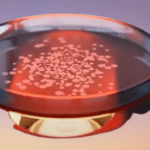After completing a Bachelor of Pharmacy (B.Pharm) degree, graduates have various career options in the pharmaceutical and healthcare sectors. Whether you’re interested in research, clinical practice, or the business side of the industry, here’s a brief article outlining the different paths and opportunities available after obtaining a B.Pharm degree:
A Bachelor of Pharmacy (B.Pharm) degree equips graduates with a strong foundation in pharmaceutical sciences, drug development, healthcare, and patient care. With this versatile degree, individuals can explore diverse career paths in the pharmaceutical industry and beyond. Let’s explore the different opportunities available after completing a B.Pharm degree.
Clinical Practice:
- Community Pharmacist: Work in retail pharmacies, providing medication counseling, dispensing prescriptions, and offering healthcare advice to patients after Bachelor of Pharmacy.
- Hospital Pharmacist: Collaborate with healthcare teams in hospitals, ensuring safe and effective medication use, monitoring drug therapy, and participating in patient care ater Bachelor of Pharmacy.

Pharmaceutical Industry:
- Research and Development (R&D): Contribute to drug discovery, formulation development, pharmacovigilance, clinical trials, and regulatory affairs in pharmaceutical companies after Bachelor of Pharmacy.
- Quality Control/Quality Assurance: Ensure compliance with regulatory standards, perform quality testing on pharmaceutical products, and monitor manufacturing processes after Bachelor of Pharmacy.
- Production/Manufacturing: Oversee the production of pharmaceutical products, manage operations, and ensure adherence to Good Manufacturing Practices (GMP) after Bachelor of Pharmacy.
- Regulatory Affairs: Navigate the regulatory landscape, prepare regulatory submissions, and ensure compliance with local and international regulations.

Healthcare and Clinical Research:
- Clinical Research Associate (CRA): Coordinate and monitor clinical trials, collect data, ensure patient safety, and maintain regulatory compliance.
- Medical Writing: Create scientific documents, such as clinical study reports, regulatory submissions, and drug monographs.
- Pharmacovigilance: Monitor and evaluate the safety of marketed drugs, collect and analyze adverse event data, and contribute to drug safety assessments.
Academia and Research Institutes:
- Academia: Pursue higher education (M.Pharm, Ph.D.) and become a lecturer or researcher in pharmacy colleges or universities.
- Research Institutes: Contribute to scientific research in pharmaceutical sciences, drug delivery systems, pharmacology, or medicinal chemistry.
Pharmaceutical Marketing and Sales:
- Medical Representative: Promote pharmaceutical products to healthcare professionals, build relationships, and provide product information.
- Product Management: Develop marketing strategies, conduct market research, and manage product portfolios in pharmaceutical companies.
- Pharmaceutical Sales Manager: Oversee sales teams, develop sales strategies, and manage customer relationships.
Entrepreneurship:
- Start your own pharmacy or pharmaceutical business, such as a retail pharmacy, compounding pharmacy, or pharmaceutical consultancy.
Conclusion: A Bachelor of Pharmacy (B.Pharm) degree opens up many career opportunities in the pharmaceutical industry and healthcare sectors. Graduates can choose from clinical practice, research and development, quality control, regulatory affairs, clinical research, academia, marketing, and sales, or even pursue entrepreneurial ventures. It is important to assess personal interests, strengths, and goals to make an informed decision about the desired career path. Continuing education, specialization, and gaining practical experience through internships or industry exposure can further enhance career prospects. With a B.Pharm degree, individuals have the potential to contribute significantly to the advancement of healthcare and pharmaceutical sciences.
bachelor of pharmacy salary
The salary of a Bachelor of Pharmacy (B.Pharm) graduate can vary depending on various factors such as the country or region of employment, years of experience, job position, and the specific industry sector. Salaries can also differ between different countries due to variations in the cost of living and economic conditions. However, to provide a general idea, here is a rough salary range for B.Pharm graduates in different regions:
- United States:
- Entry-level positions: $70,000 to $90,000 per year
- Mid-career positions: $90,000 to $120,000 per year
- Experienced professionals: $120,000 or more per year
- United Kingdom:
- Entry-level positions: £25,000 to £35,000 per year
- Mid-career positions: £35,000 to £50,000 per year
- Experienced professionals: £50,000 or more per year
- Canada:
- Entry-level positions: CAD 50,000 to CAD 70,000 per year
- Mid-career positions: CAD 70,000 to CAD 100,000 per year
- Experienced professionals: CAD 100,000 or more per year
- Australia:
- Entry-level positions: AUD 50,000 to AUD 70,000 per year
- Mid-career positions: AUD 70,000 to AUD 90,000 per year
- Experienced professionals: AUD 90,000 or more per year
Please note that these salary ranges are approximate and can vary depending on factors mentioned earlier. Additionally, salaries may be higher in specialized roles, such as clinical pharmacists, pharmaceutical researchers, or those in managerial positions. It’s always advisable to research specific job markets and consult reliable salary sources for accurate and up-to-date information.
Salary of a Bachelor of Pharmacy (B.Pharm) graduate in India
The salary of a Bachelor of Pharmacy (B.Pharm) graduate in India can vary based on factors such as the job role, experience level, location, and the specific industry sector. Salaries in India are generally lower compared to some other countries due to differences in the cost of living and economic conditions. However, here is a rough salary range for B.Pharm graduates in India:
- Entry-level positions (Freshers):
- Pharmaceutical industry: Rs. 2.5 lakh to Rs. 4 lakh per year
- Retail pharmacy: Rs. 1.8 lakh to Rs. 3 lakh per year
- Hospital pharmacy: Rs. 2 lakh to Rs. 3.5 lakh per year
- Mid-career positions (2-5 years of experience):
- Pharmaceutical industry: Rs. 4 lakh to Rs. 8 lakh per year
- Retail pharmacy: Rs. 3 lakh to Rs. 6 lakh per year
- Hospital pharmacy: Rs. 3.5 lakh to Rs. 7 lakh per year
- Experienced professionals (5+ years of experience):
- Pharmaceutical industry: Rs. 8 lakh to Rs. 15 lakh per year
- Retail pharmacy: Rs. 6 lakh to Rs. 10 lakh per year
- Hospital pharmacy: Rs. 7 lakh to Rs. 12 lakh per year
Please note that these salary ranges are approximate and can vary depending on factors such as the company size, location (urban or rural), job responsibilities, and individual negotiation skills. Salaries may also vary between different states in India. It’s advisable to research specific industries, job markets, and consult reliable salary sources for accurate and up-to-date information.

Frequently Asked Questions:
What is a Bachelor of Pharmac ( B.Pharm) degree?
Answer: A Bachelor of Pharmacy (B.Pharm) degree is an undergraduate program that provides knowledge and skills in pharmaceutical sciences, drug development, and patient care.
What are the career prospects after completing a B.Pharm degree?
Answer: Career prospects include roles in clinical practice, the pharmaceutical industry, research institutes, academia, healthcare, and entrepreneurship.
Can a B.Pharm graduate work as a pharmacist?
Answer: Yes, B.Pharm graduates can work as community pharmacists, hospital pharmacists, or clinical pharmacists.
What are the opportunities in the pharmaceutical industry for B.Pharm graduates?
Answer: Opportunities include research and development, quality control/assurance, production/manufacturing, regulatory affairs, and pharmacovigilance.
Is higher education necessary after completing a B.Pharm degree?
Answer: Higher education such as M.Pharm or Ph.D. can provide advanced knowledge and research opportunities, but it is not mandatory for career growth.
Can B.Pharm graduates work in clinical research?
Answer: Yes, B.Pharm graduates can work as clinical research associates, data analysts, or medical writers in the field of clinical research.
Are there career options in academia after a B.Pharm degree?
Answer: Yes, B.Pharm graduates can pursue higher education and work as lecturers or researchers in pharmacy colleges or universities.
What skills are important for career growth after a B.Pharm degree?
Answer: Skills such as strong pharmaceutical knowledge, research abilities, communication, critical thinking, and problem-solving are important for career growth.
Can B.Pharm graduates work in the field of pharmaceutical marketing and sales?
Answer: Yes, B.Pharm graduates can work as medical representatives, product managers, or sales managers in pharmaceutical companies.
Are there opportunities for B.Pharm graduates in entrepreneurship?
Answer: Yes, B.Pharm graduates can start their own pharmacies, pharmaceutical businesses, or consultancies.
Is it necessary to specialize in a specific area after a B.Pharm degree?
Answer: Specialization can enhance career prospects, but it is not mandatory. Graduates can choose to specialize through higher education or gain experience in a particular domain.
Can B.Pharm graduates work in drug regulatory affairs?
Answer: Yes, B.Pharm graduates can work in regulatory affairs to ensure compliance with local and international regulations and prepare regulatory submissions.
What are the opportunities for B.Pharm graduates in pharmaceutical research and development?
Answer: B.Pharm graduates can contribute to drug discovery, formulation development, clinical trials, and pharmacovigilance in research and development departments.
Can B.Pharm graduates work in healthcare settings other than pharmacies?
Answer: Yes, B.Pharm graduates can work in healthcare settings such as hospitals, clinics, and healthcare organizations, contributing to patient care and medication management.
How important is practical experience for career growth after a B.Pharm degree?
Answer: Practical experience through internships, industry exposure, or hands-on training is valuable for career growth, as it provides real-world skills and enhances employability.
Are there global career opportunities for B.Pharm graduates?
Answer: Yes, B.Pharm graduates can explore career opportunities globally, as the pharmaceutical industry is present worldwide.

After the Bachelor of Pharmacy, You may also read about the history of Microbiology.
